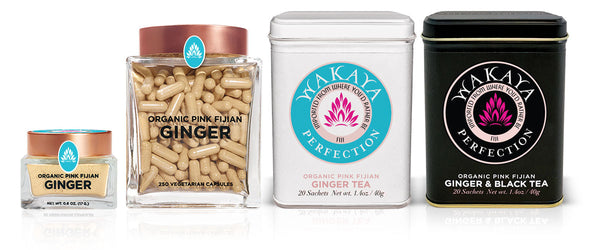Reducing Inflammation with Ginger
Ginger has been used by humans for over 5,000 years. It was traditionally used by the Chinese and Indian cultures because of its medicinal properties. Today ginger is being recognized for its many benefits, including reducing inflammation.
Gingerol
A flowering plant that originated in China, ginger is closely related to turmeric. It is the root of the ginger plant that contains the sought after medicinal properties. Gingerol is the active ingredient that works to help reduce inflammation.
Pulmonary Inflammation
Asthma is prevalent in many areas. The inflammation caused by asthma causes shortness of breath, wheezing, and trouble breathing. A study published in the American Journal of Respiratory Cell and Molecular Biology found that ginger had several beneficial effects on the airways, including relaxation and reduced inflammation.
Osteoarthritis
Individuals with osteoarthritis have shown improvement after consuming ginger. In a study of 267 participants with knee pain, those who took ginger reported a significant decrease in pain when trying to stand up. The same group also demonstrated a better ability to walk short distances and take fewer pain relievers.
Muscle Pain and Soreness
The anti-inflammatory properties in ginger may help with muscle pain and soreness due to exercise. In one study, researchers found that taking a ginger supplement every day for 11 days helped reduce the pain and soreness of injured muscles.
Although ginger may be useful in reducing muscle pain, note that it is not instantaneous and requires the regular consumption of ginger.
Researchers have found that ginger is truly a superfood. Ginger has been used in Chinese medicine for centuries and has performed well in studies by helping to reduce inflammation, which causes pain and damage to your body. Ginger comes in many forms, including powder, tea, and supplements.
Experience our full collection of organic pink Fijian ginger products today!
Sources:
https://pubmed.ncbi.nlm.nih.gov/11710709/
https://www.ncbi.nlm.nih.gov/pmc/articles/PMC3604064/
https://pubmed.ncbi.nlm.nih.gov/20418184/


